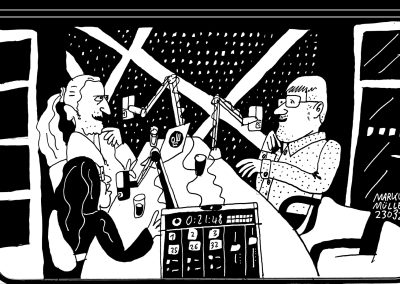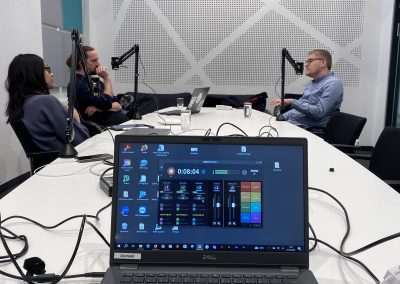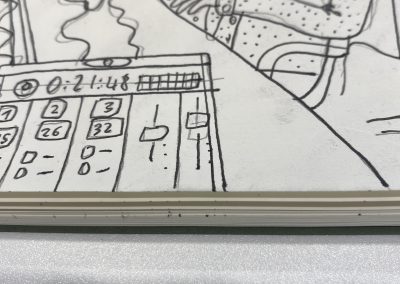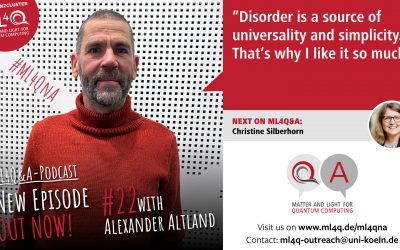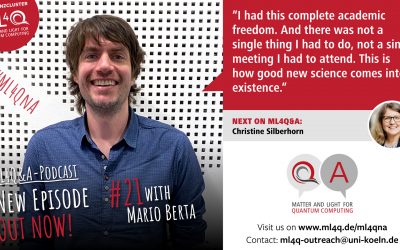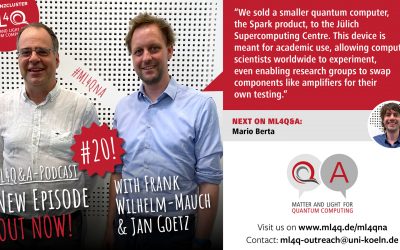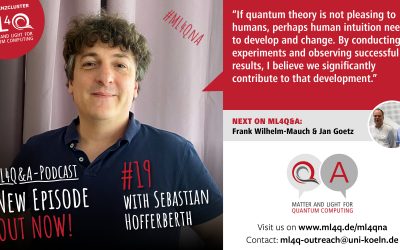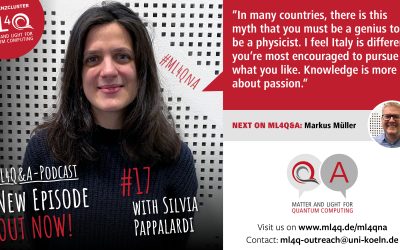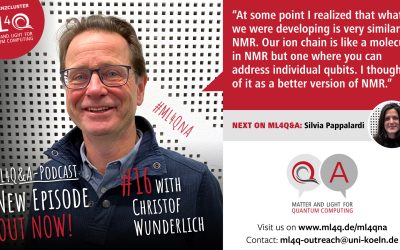
In this episode, Mira and Chris talk with Markus Müller, a member of ML4Q and Professor at RWTH Aachen University and Forschungszentrum Jülich. Markus, an expert in quantum error correction, explains its importance in building large-scale quantum computers. He has supported pioneering logical qubit experiments on various platforms, including ion traps and superconducting qubits. They also discuss his recent work on avoiding mid-circuit measurements, a technique that benefits certain architectures and chip designs.
Listen to the full podcast episode with Markus here or using your podcatcher. You can also download the transcript of the episode here.
00:00:00 Intro
00:01:06 Welcome Markus
00:01:35 Reflections on the early career experience
00:21:44 A deep dive into quantum error correction
00:44:02 Getting to the promised land of fault-tolerant quantum computing
00:50:20 About magic state preparation and injection
00:55:23 About code switching
00:57:23 What about decoding?
01:01:15 Discussing recent work on fault-tolerant resource optimized schemes
01:12:02 Outlook on future projects
Note: The episode was recorded back in March. The recent work discussed from 01:01:15 onwards is the paper titled “Measurement-Free Fault-Tolerant Quantum Error Correction in Near-Term Devices” a synopsis of which appeared on physics.org. Since the recording another work on the “Demonstration of fault-tolerant Steane quantum error correction” was published in PRX Quantum.
While recording, Alex Jahn – who is not only a talented web designer and a great podcast editor but obviously a gifted illustrator – made this drawing of the recording session:
Previous ML4Q&A episodes:
Concepts, Chaos, and Cluster Coordination: Alex Altland on ML4Q&A
In this episode of ML4Q&A, Chris and Mira talk with Alex Altland, theoretical physicist and ML4Q member, about the tension between deep scientific thinking and the administrative reality of coordinating the renewal proposal of ML4Q. As one of the designated...
From industry back to academia: Mario Berta on MLQ&A
In this episode of ML4Q&A, Chris and Mira are joined by ML4Q Professor Mario Berta, who shares his unique journey from ETH Zürich via Imperial College London and Amazon Web Services to RWTH Aachen University. They discuss his work on quantum algorithms,...
From Academia to Industry: Frank Wilhelm-Mauch and Jan Goetz on MLQ&A’s 20th Episode
In this special 20th episode of ML4Q&A, Chris and Mira celebrate the journey of the podcast, from its beginnings in 2021 to becoming a platform for exploring quantum careers, research, and innovation. This milestone episode dives into the interplay between...
Rydberg atoms and career journeys – ML4Q&A with Sebastian Hofferberth
In the podcast's so far longest episode, Mira and Chris speak to Sebastian Hofferberth about his journey through academia as he literally went from Heidelberg to Harvard, to Stuttgart, then Denmark and finally to Bonn where he became member of ML4Q. We talk...
Understanding quantum chaos over a glass of Campari – ML4Q&A with Silvia Pappalardi
In this episode Mira and Chris talk to Silvia Pappalardi, who joined ML4Q as a junior professor in April 2023. Silvia heads the Qhaos group (spelled with a Q) and introduces our listeners to the topic of quantum chaos which might be a bit intimidating for many...
ML4Q&A with Christof Wunderlich on Ion-Trap Quantum Computing
In this episode Chris introduces Mira Sharma, his co-host of the show. Mira is a PhD student at IQI in David DiVincenzo's group. This is their first co-hosted episode, so it is an experiment.For today’s episode Chris and Mira left the cluster bubble on a...
